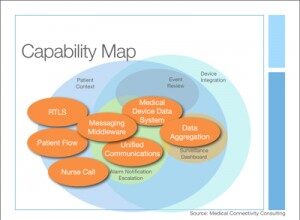Originally published on MedCityNews.
At one point during my trip to FutureMed earlier this year, I found myself seated next to a young man — noticeably younger than many of the entrepreneurs and doctors-in-training who were attending. Shaggy haircut, jeans, smartphone always in hand. Must be a local high schooler who had won some kind of contest to attend, or was getting school credit for being there, I thought.
Originally published on MedCityNews.
At one point during my trip to FutureMed earlier this year, I found myself seated next to a young man — noticeably younger than many of the entrepreneurs and doctors-in-training who were attending. Shaggy haircut, jeans, smartphone always in hand. Must be a local high schooler who had won some kind of contest to attend, or was getting school credit for being there, I thought.
It turns out, he was a high schooler and he had won a contest, but it was the Intel Science Fair, and he was actually a faculty member for FutureMed. It was Jack Andraka, one of many young scientists and entrepreneurs who have set their sights on solving some of medicine’s big problems.
Here are a few of these budding scientists and entrepreneurs to watch:
 Last year, at age 15, Andraka won the Intel Science Fair for developing a sensor strip for detecting a pancreatic cancer biomarker that he says is faster, cheaper and more sensitive than existing diagnostics. Now, he has assembled a team of teenagers to develop a diagnostic sensor device for the Qualcomm Tricorder X Prize.
Last year, at age 15, Andraka won the Intel Science Fair for developing a sensor strip for detecting a pancreatic cancer biomarker that he says is faster, cheaper and more sensitive than existing diagnostics. Now, he has assembled a team of teenagers to develop a diagnostic sensor device for the Qualcomm Tricorder X Prize.
Fred Turner won the title of UK Young Engineer of the Year earlier this year for building his own polymerase chain reaction machine, which he uses in his at-home laboratory to study DNA. His first project? Determining why his brother has ginger hair and he doesn’t. The 17-year-old will reportedly attend Oxford University in the fall to study biochemistry.
High school senior Brittany Wenger is combining medicine and data science to create an “artificial neural network” to improve breast cancer diagnosis. She won the 2012 Google Science Fair and created Cloud4Cancer, a project that collects data from biopsies done with the fine-needle aspiration process, with the goal of helping doctors better assess whether breast tumors are malignant or benign
A finalist in the 2013 Intel Science Talent Search and the winner of NPR’s Big Idea contest, 17-year-old Catherine Wong took on a digital health challenge of her own when she developed a low-cost, smartphone-based electrocardiogram (a la AliveCor) for the developing world. Her device uses off-the-shelf electronic components to pick up the heart’s electrical signals, and sends them via cellphone to a physician.
After his mother broke her leg and refused to take pain medication for fear of becoming dependent, Oregon high schooler Raghav Tripathi began researching a potential non-addictive painkiller. His research, which landed him a spot as a finalist in the 2012 Siemens Competition in Math, Science and Technology, focused on anandamide, a compound produced by the body that has painkilling effects at elevated levels. He told ABC News he hopes his work will lead to a medicine or vaccine.
(teen scientist / shutterstock)






